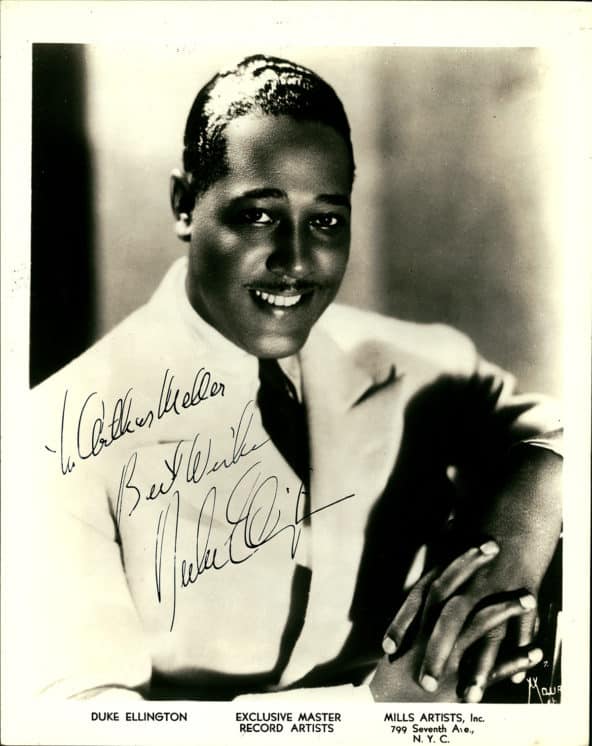Vaudeville

Photo Credit: Hennepin Public Library
Duke Ellington
Jazz musician and conductor
Excerpts from Official Site of Jazz Legend Duke Ellington:
Duke Ellington called his music “American Music” rather than jazz and liked to describe those who impressed him as “beyond category.” He remains one of the most influential figures in jazz, if not in all American music, and is widely considered one of the 20th century’s best known African American personalities. As both a composer and a band leader, Ellington’s reputation has increased since his death, with thematic repackaging of his signature music often becoming best-sellers. Posthumous recognition of his work even includes a special award citation from the Pulitzer Prize Board.
Duke Ellington is best remembered for the over three thousand songs that he composed during his lifetime. His best-known titles include “It Don’t Mean a Thing if It Ain’t Got That Swing,” “Sophisticated Lady,” “Mood Indigo,” “Solitude,” “In a Mellotone,” and “Satin Doll.” The most amazing part about Ellington was that he was the most creative while he was on the road. It was during this time he wrote his most famous piece, “Mood Indigo,” which brought him worldwide fame.
Ellington’s heyday began in 1927 when his band made the Cotton Club its home. His popular compositions set the bar for generations of brilliant jazz, pop, theater and soundtrack composers to come. While these compositions guarantee his greatness, what made him an iconoclastic genius, an unparalleled visionary and what has granted him immortality are his extended suites. From 1943’s Black, Brown and Beige to 1972’s The Uwis Suite, Ellington used the suite format to give his jazz songs a far more empowering meaning, resonance and purpose: to exalt, mythologize and re-contextualize the African American experience on a grand scale.
Ellington was awarded the Grammy Lifetime Achievement Award in 1966. He was later awarded several other prizes including the Presidential Medal of Freedom in 1969 and the Legion of Honor by France in 1973, the highest civilian honors in each country. He died of lung cancer and pneumonia on May 24, 1974, a month after his 75th birthday, and is buried in the Bronx in New York City. At his funeral, attended by over 12,000 people at the Cathedral of St. John the Divine, Ella Fitzgerald summed up the occasion, “It’s a very sad day…A genius has passed.” When asked what inspired him to write, Ellington replied, “My men and my race are the inspiration of my work. I try to catch the character and mood and feeling of my people.”
For more on the life and work of Duke Ellington visit: http://www.dukeellington.com/